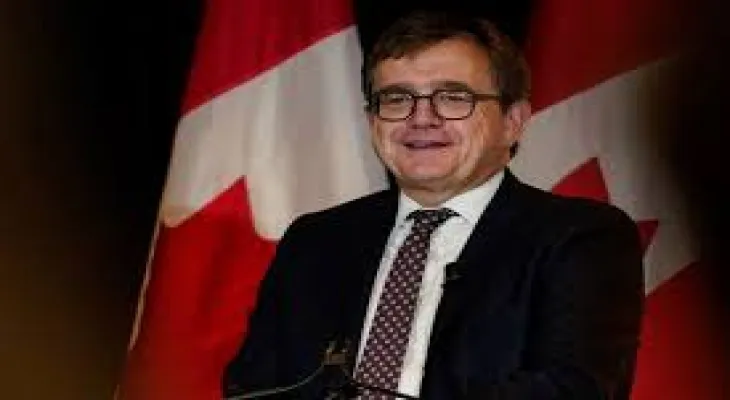Search here
Newspaper
Search here

Arab Canada News
News

Published: March 18, 2024
Natural Resources Minister Jonathan Wilkinson said that regional premiers calling on the government to cancel the planned increase in the carbon tax are misinformed.
In an interview broadcast on Sunday on the Rosemary Barton Live program, Wilkinson defended the federal government's historic climate policy against a growing group of provincial leaders who hope either to delay or completely scrap the impending increase on April 1.
Wilkinson told guest host David Common, "Based on the facts, the seven premiers are completely wrong."
Wilkinson's comments continue the defense of the carbon tax by federal officials – including Prime Minister Justin Trudeau – based on affordability. They argue that removing or temporarily suspending the carbon tax would hurt more people than it helps, due to lower rebates.
Regional premiers across the country have protested the upcoming increase, which will raise the tax to $80 per tonne from $65. The federal government responds that eight out of ten Canadians receive more in tax rebates than they pay.
Wilkinson said on Sunday that the government needs to do more to convince Canadians of the benefits of this policy.
He added, "I think we need to do a better job communicating the affordability dimensions of the pollution price, because it's something that makes life affordable for everyone."
The carbon tax was a main point of attack for Conservative leader Pierre Poilievre, who held an event titled "Spike the Hike" on Friday in Saint John, New South Wales, where he highlighted two parliamentary motions to be voted on this week calling for imposing, increasing, and removing taxes more broadly.
Part of the disagreement between the two parties stems from a report by the Parliamentary Budget Office issued two years ago, which presented two models to test the impact of the tax when it peaks in 2030. Liberals point to the financial analysis in the report that indicated most families benefit from this policy, while Conservatives exploited a broader economic model that showed negative consequences for the economy leading to a decline in Canadians' financial well-being.
Regional Backlash
In a separate interview on the live-broadcast Rosemary Barton program on Sunday, Ontario Finance Minister Peter Bethlenfalvy said that while his government supports the war on climate change, the cost of living challenge was front and center.
He told Common, "Now is not the time for another tax increase."
"Our message now is to pause or reduce taxes; there are different ways to reach zero,"
Saskatchewan has been at the forefront of regional resistance to the tax, going so far as refusing to transfer the carbon tax collected on natural gas used for home heating, in defiance of federal law.
Dustin Duncan, the minister responsible for SaskEnergy, said, "Our view is that if the Prime Minister thinks that lowering the carbon tax and reducing the rebate for Atlantic Canadians means that it will be a net positive in terms of affordability for those populations, surely that logic must apply to Saskatchewan."
Wilkinson on Sunday: "Obviously, there have to be consequences."
He added that what those consequences might be is "actively being discussed."
"I don’t know how Saskatchewan Premier Scott Moe expects people living within his province’s borders to respect the laws he passes through the legislature in light of what he has done.
Comments